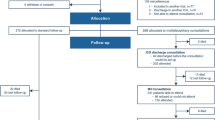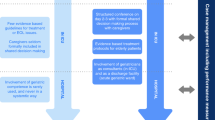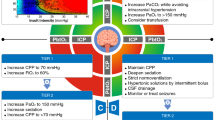Abstract
Background
Delirium is a severe condition that can arise in many contexts during hospitalization. The aim of this research was to measure the incidence of postoperative delirium in patients aged 75 years or older, with the exclusion of those with preexisting neurocognitive disorders (NCD), who underwent fast-track, moderate surgery.
Methods
We conducted a prospective cohort study with patients ≥ 75 years of age who were eligible for fast-track, moderate surgery, without severe dementia, with a planned hospitalization of 24 h and with a physical status varying from very fit to vulnerable. The 4-item confusion assessment method (CAM4) was used to measure delirium.
Results
Of the 209 eligible patients, 195 subjects were enrolled in the study. The percentage of the population with a CAM4 score above 0 before surgery was 2.56%; after surgery, the percentage was 10.25%; and on the following day, the percentage was 4.61%. There was a statistically significant difference in the CAM4 scores between immediately after surgery and at 24 h after surgery (p = 0.0172).
Conclusion
The data from this study support an enhanced recovery approach for elderly patients, in which after a minor surgical procedure with anaesthesia, a recovery period of one night in the hospital can contribute to normalizing the CAM4 score and reducing the incidence of delirium.
Graphic abstract



Similar content being viewed by others
Code availability
Not applicable.
References
Marcantonio ER (2017) Delirium in hospitalized older adults. N Engl J Med 377:1456–1466
Laporte L, Hermetet C, Jouan Y et al (2018) Ten-year trends in intensive care admissions for respiratory infections in the elderly. Ann Intensive Care 8:84
Ravesh MS, Rusch R, Friedrich C et al (2019) Impact of patients age on short and long-term outcome after carotid endarterectomy and simultaneous coronary artery bypass grafting. J Cardiothorac Surg 14:109
Evered L, Silbert B, Knopman DS et al (2018) Recommendations for the nomenclature of cognitive change associated with anaesthesia and surgery-2018. Br J Anaesth 121:1005–1012
Raats JW, van Eijsden WA, Crolla RM et al (2015) Risk factors and outcomes for postoperative delirium after major surgery in elderly patients. PLoS ONE 10:e0136071
Inouye SK, Westendorp RG, Saczynski JS (2014) Delirium in elderly people. Lancet 383:911–922
Fagard K, Wolthuis A, D'Hoore A et al (2019) A systematic review of the intervention components, adherence and outcomes of enhanced recovery programmes in older patients undergoing elective colorectal surgery. BMC Geriatr 19:157
Lin H-S, McBride RL, Hubbard RE (2018) Frailty and anesthesia - risks during and post-surgery. Local Regional Anesth 11:61–73
American Psychiatric Association (2013) Diagnostic and statistical manual of mental disorders, 5th edn. Elsevier Inc., Washington, DC
Bannay A, Chaignot C, Blotiere PO et al (2016) The best use of the charlson comorbidity index with electronic health care database to predict mortality. Med Care 54:188–194
Chang CM, Yin WY, Wei CK et al (2016) Adjusted age-adjusted charlson comorbidity index score as a risk measure of perioperative mortality before cancer surgery. PLoS ONE 11:e0148076
Booka E, Kamijo T, Matsumoto T et al (2016) Incidence and risk factors for postoperative delirium after major head and neck cancer surgery. J Craniomaxillofac Surg 44:890–894
Aya AGM, Pouchain PH, Thomas H et al (2019) Incidence of postoperative delirium in elderly ambulatory patients: a prospective evaluation using the FAM-CAM instrument. J Clin Anesth 53:35–38
Siddiqi N, Harrison JK, Clegg A et al (2016) Interventions for preventing delirium in hospitalised non-ICU patients. Cochrane Database Syst Rev 3:CD005563
O'Mahony R, Murthy L, Akunne A et al (2011) Synopsis of the national institute for health and clinical excellence guideline for prevention of delirium. Ann Intern Med 154:746–751
Rizk P, Morris W, Oladeji P et al (2016) Review of postoperative delirium in geriatric patients undergoing hip surgery. Geriatr Orthop Surg Rehabil 7:100–105
Sandhaus S, Zalon ML, Valenti D et al (2010) A volunteer-based hospital elder life program to reduce delirium. Health Care Manag (Frederick) 29:150–156
Barr J, Fraser GL, Puntillo K et al (2013) Clinical practice guidelines for the management of pain, agitation, and delirium in adult patients in the intensive care unit. Crit Care Med 41:263–306
Linszen MM, Brouwer RM, Heringa SM et al (2016) Increased risk of psychosis in patients with hearing impairment: review and meta-analyses. Neurosci Biobehav Rev 62:1–20
van Meenen LC, van Meenen DM, Rooij SE et al (2014) Risk prediction models for postoperative delirium: a systematic review and meta-analysis. J Am Geriatr Soc 62:2383–2390
Wei LA, Fearing MA, Sternberg EJ et al (2008) The confusion assessment method: a systematic review of current usage. J Am Geriatr Soc 56:823–830
Lin HS, Watts JN, Peel NM et al (2016) Frailty and post-operative outcomes in older surgical patients: a systematic review. BMC Geriatr 16:157
Monacelli F, Signori A, Prefumo M et al (2018) Delirium, frailty, and fast-track surgery in oncogeriatrics: is there a link? Dement Geriatr Cogn Dis Extra 8:33–41
Ljungqvist O, Scott M, Fearon KC (2017) Enhanced recovery after surgery: a review. JAMA Surg 152:292–298
Beverly A, Kaye AD, Ljungqvist O et al (2017) Essential elements of multimodal analgesia in enhanced recovery after surgery (ERAS) guidelines. Anesthesiol Clin 35:e115–e143
Cerantola Y, Valerio M, Persson B et al (2013) Guidelines for perioperative care after radical cystectomy for bladder cancer: Enhanced Recovery After Surgery (ERAS(®) society recommendations. Clin Nutr 32:879–887. https://doi.org/10.1016/j.clnu.2013.09.014
FitzGerald JM, O'Regan N, Adamis D et al (2017) Sleep-wake cycle disturbances in elderly acute general medical inpatients: longitudinal relationship to delirium and dementia. Alzheimers Dement (Amst) 7:61–68
Funding
The study was funded by institutional funds for ad hoc research from the University of Modena and Reggio Emilia, Italy.
Author information
Authors and Affiliations
Contributions
G.M.: study conception and design, acquisition of data, analysis and interpretation of data, drafting of the manuscript. G.A.: acquisition of data. A.R.: acquisition of data. S.M.: acquisition of data. F.T.: acquisition of data. E.G.: drafting of themanuscript. E.B.: drafting and critical revision of the manuscript. G.M.C.: drafting and critical revision of the manuscript. A.B.: study concept and design, analysis and interpretation of data, drafting and critical revision of the manuscript.
Corresponding author
Ethics declarations
Conflict of interest
The authors report no conflicts of interest.
Ethics approval, consent to participate and for publication
Clinical trial registration. Local approval of the Institutional Ethics Committee (Comitato Etico Provinciale di Modena, July 29, 2015, procedure 119/15).
Informed consent
All participants provided informed consent prior their participation.
Availability of data and material
The dataset is available upon request.
Additional information
Publisher's Note
Springer Nature remains neutral with regard to jurisdictional claims in published maps and institutional affiliations.
Rights and permissions
About this article
Cite this article
Melegari, G., Albertini, G., Romani, A. et al. Why should you stay one night? Prospective observational study of enhanced recovery in elderly patients. Aging Clin Exp Res 33, 1955–1961 (2021). https://doi.org/10.1007/s40520-020-01690-1
Received:
Accepted:
Published:
Issue Date:
DOI: https://doi.org/10.1007/s40520-020-01690-1




